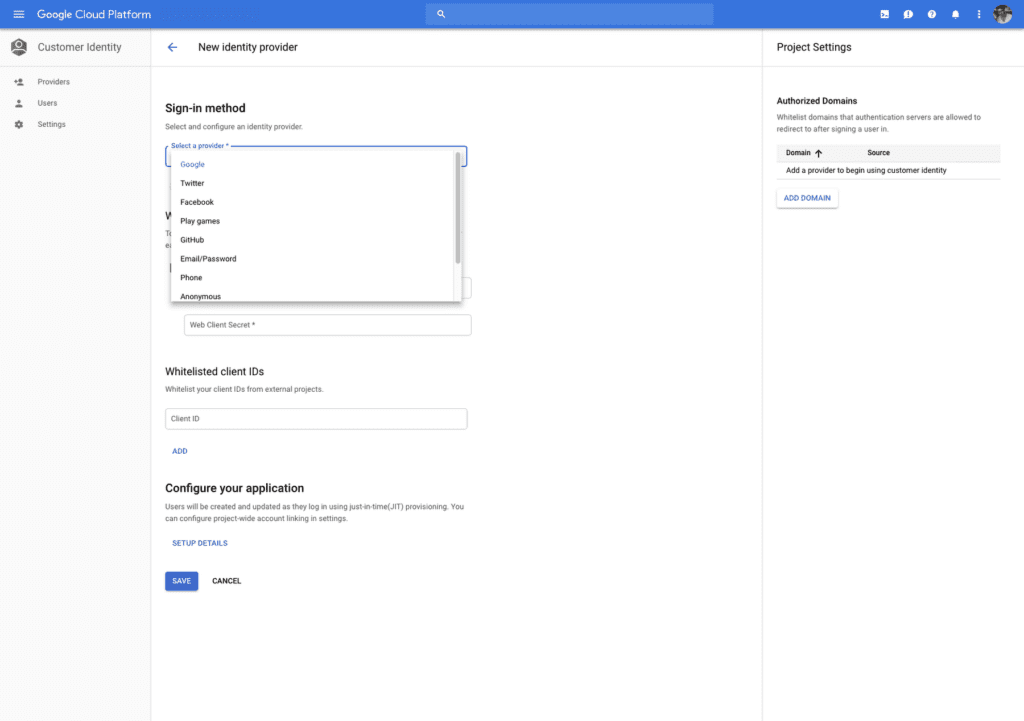 When it comes to identity management, you want to make it as simple as possible. Most small businesses don’t have the development resources to build a solution with solid identity capabilities built-in from scratch. If you can’t afford to build it, you have to find a solution to plug-in and that’s precisely what Google announced this week with the new Cloud Identity for Customers and Partners (CICP) service.
When it comes to identity management, you want to make it as simple as possible. Most small businesses don’t have the development resources to build a solution with solid identity capabilities built-in from scratch. If you can’t afford to build it, you have to find a solution to plug-in and that’s precisely what Google announced this week with the new Cloud Identity for Customers and Partners (CICP) service.
While it’s not the catchiest name you’ll ever see, the cloud company has packaged the same identity and authentication tools it uses and made it available to developers as a service. That is the power of the cloud and APIs at work, right there.
As Google pointed out in a blog post announcing the new service, it’s hard to ensure security and get the identity and access right, without getting in the way of the user experience. What’s more, with an ever-growing security threat landscape, protecting accounts becomes increasingly important.
“To address this, we’re announcing Cloud Identity for Customers and Partners (CICP), a customer identity and access management (CIAM) platform that can help developers add Google-grade identity and access management functionality to their apps, protect user accounts, and scale with confidence,” Google wrote in the blog post announcing the new service.

Screenshot: Google
Getting the power of Google
The beauty of a service like this for small businesses is that they get the power of Google, the primary value proposition of any cloud service. They get to use the same tools, run on the same infrastructure that Google is uses to authenticate users on its services, implying inclusion of access to Google’s threat intelligence.
A company like Google faces enormous security challenges, much greater than anything your small to medium-sized business are every likely to encounter, and certainly not on the scale a company like Google must handle on a daily basis. Yet, because Google has packaged this as a service, you have access to the same set of tools and technologies as one of the largest internet companies in the world.
What’s more, the service is flexible enough to support a variety of identity standards such as SAML or social sign-ons and it supports a variety of platforms and server SDKs, providing a level of flexibility for developers to use the tools they like.
The service, which was announced at Google Next in London this week, is not available quite yet, but Google promises it will be announcing a public beta in the coming weeks.
Photo: BiljaST on Pixabay. Used under CC0 license.
